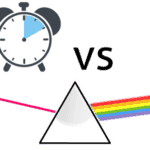I have been a bit critical of Google Analytics recently. I find it hard to use if you are not a certified data nerd. It also does not give you a lot of information you can readily make use of unless you really dig into it. Heck, that’s one of the reasons we created Prismana. But the reality is, you HAVE to use Google Analytics. And the reasons, of which I will now explain, may surprise you.
Some groundwork on Google
- Google.com is the most popular search engine in the world with around 90% market share as of June 2017. Most people know that.
- What many do not know is that YouTube (also owned by Google) is the SECOND largest search engine in the world. YouTube is often considered a social media platform so it is not listed with the other, more obvious candidates. Call it what you will. It has monster traffic and you use it to search for your favorite video in either Google or YouTube. I’m calling it a search engine for the purposes of this discussion.
- The Google Chrome browser is the most popular browser in the world with over 62% market share as of June 2017.
- Over 94% of websites have an instance of Google Analytics on them
So, one company has built the most popular means to find content. And you do that while searching for and browsing that content on their browser. In addition, all the while they are collecting data seamlessly through this tidy little ecosystem. Feeling a little creeped out yet? It’s fine. It gets better.
None of this was accidental. Contrary to popular belief, Google is in the data engineering business – not the software/search engine business. They are really, REALLY good at it. They apply this skill in a number of ways. One way is what garners them the bulk of their revenues – advertising – namely Google AdWords, Display Network, and AdSense. Google has been methodical about creating a web environment where you have to use Google Analytics if you want them to recognize you properly.
Bottom line: Google essentially represents a large chunk of the internet itself and captures that data while doing it. Facebook is a close second but I’m not going to get into that here.
OK, so Google wants my data
You may think, “You make a good point. I’m not comfortable with this so I’m going to start using Firefox and Bing. And I don’t have to use Google Analytics.” Yeah, you could do that but Google.com and YouTube are the most popular for a reason – they are the best. The same goes for Chrome. Moreover, Google Analytics is free. In addition, it’s the only analytics most business use (but how often do they log into it?).
The thing is you have a website for a reason. You want people to find you, go to your site, and do something that you consider beneficial to you. Otherwise, why would you have created the site in the first place, right?
Therefore, whether you like it or not, you’ve gotta play ball – at least if you care about showing up on page one of Google.com.
Other Google Services
If you really want to do your best on Google.com, not only do you have to use Google Analytics, but you really should also connect your site to Google Search Console. In my opinion, this is a much handier tool than Google Analytics. It will give you feedback directly from Google such as
- how your site is indexing
- errors that may be occurring
- recommendations for improving your site’s crawlability and code structure
- mobile friendliness
- the ability to submit your site’s pages directly to Google.com
- search terms people used to find you
- inbound links to your site
- and a bunch of other things that web professionals find quite useful
In addition, all of that information is information that Google is giving to you directly. This is important. They are not collecting information through any type of search console software to display this info for you. It’s derived from other sources (like Google Search and Google Analytics). And they serve that up to you. In any case, it’s the most valuable data Google will give you for free.
It’s not perfect, but you get what you pay for
The information isn’t perfect and they could give you more of it. Nevertheless, it’s a whole lot more actionable than Google Analytics. Most people only use a few interesting, but not always super helpful, indicators:
- time on page/time on site
- new sessions vs returning sessions
- bounce rate (not reliable, in our opinion)
- average session duration
- channel sources (sort of)
- and there’s a ton of other info that’s more helpful that most people just never dig into due to the complexity of the product
This is, simply, what you are giving Google:

The thing about most of this information is that it doesn’t give you what you really want: “What did people do that made me money?” Yes, Google Analytics will allow you to track goals and conversions (sort of) but most people don’t know how to do that. Crucially, if the conversion comes from a phone call or an email (i.e., starts online but ends offline), you have no idea as to why.
Why you have to use Google Analytics
So the information that Google gets from their search engine is significant. They spider just about every page on the web. Those spiders collect a TON of data on your pages and brings it back to Google. Google also knows when, why and where they enter your site – because of Google Analytics. Still with me?
Google Analytics gives them information such as the behaviors they exhibit on your site as well as the entire journey from entrance to exit. You get much of this information from them as well – if you are able to leverage the product. This is strictly the data from your website though. But here’s why this is so important.
A Common Scenario
If someone comes to your site (from wherever), browses around, and then leaves, Google gets this:
- where they came from before they went to your site (either from the referring domain OR the site that has Google Analytics installed on their site)
- the full picture of what they did on your site
- what site they left your site to go to – which also probably has Google Analytics on it
- and then the journey continues with Google collecting ALL of that user’s behavior – theoretically.
Here is, simply, what Google gives you:

That’s a lot of data
You see, they want ALL of the data from every individual user. They are going to use that for their own purposes. One of those purposes is to make Google Search better. That means they have to serve up the best results for every single one of the 3.5 billion searches that happen on Google every day.
Google is invested in giving users the best experience possible so they continue to come back and use the search engine every time. And they deliver – really well (see above on those market share statistics). They want to serve up your pages at the top of page one of search IF those pages are the best fit for the search that brings them up. In addition, by you installing Google Analytics on your site, this helps them immensely.
My Theory: If you do not install Google Analytics on your site, you are cutting them off from that information. They don’t know how useful your content is for the user once they are on your site. Therefore, they won’t take a chance on awarding you a spot on page one because of it.
This is how it all shakes out for Google:

There are not a whole lot of articles written on this subject. There aren’t a lot of websites to who don’t use Google Analytics so the data on the subject is sparce. However, there are a TON of articles written on how important it is to implement Google Analytics correctly – and that it is important. That speaks volumes. Draw your own conclusions.
When you don’t have to use Google Analytics
There are not a whole lot of instances where being found in a search engine isn’t useful.
- Secret government websites
- Black-market commerce
- Dark web activities
That’s all I got – and I’m kinda being facetious here. If you are going to build a website, the assumption is that you built it to be found. Why spend the time and money to build it in the first place if that’s not the case?
It’s not just Google
Microsoft has their equivalents, some that I mentioned above. Bing is their search engine. Internet Explorer is their browser. And Bing Webmaster Tools is their equivalent to Google Search Console. They just don’t have a free equivalent of Google Analytics.
You should be using Bing Webmaster Tools since it offers a different perspective. It also gives you the ability to tie right into the #2 search engine in the US. Microsoft is also a lot more generous with the amount of data they actually give you than Google. There are a bunch of reasons you need to be using it.
The only reason I’m not writing a post entitled, “Why you have to use Bing Analytics” is a) there isn’t any such product – yet and b) because they only have 3% of the total search engine market. But this doesn’t mean that Bing Search cannot be important to your business. Every market and vertical is different. There could very well be businesses out there that get more of their traffic from Bing than Google.
The big takeaway
Although Prismana is a data and analytics company, we understand that there are a lot of things that go into achieving your goals online. If you really care about SEO, then Google products are some of them. Odds are you use a number of technologies to get your company where they need to go.
If you want to track actions and conversions by channel, then you’re in the right place. If you want to capture offline (phone) and online conversions, then you’re in the right place. If you are looking to A/B test the placement and design of your call to action elements, that’s not us. Maybe look at something like Crazy Egg or Hotjar for that.
At the end of the day, you are going to use more than one tool to analyze your business. And you will have to determine which tools are right for your business. One thing is fairly certain. If you care about being found through search, you have to use Google Analytics.
If you are looking to understand things about your online efforts that aren’t readily available to you, check out Prismana. Our simple attribution platform is designed to help you easily understand where your efforts are paying off and where you will want to make your adjustments. Not sure if Prismana is right for you? Check out our easy checklist to see if Prismana is right for your business.




